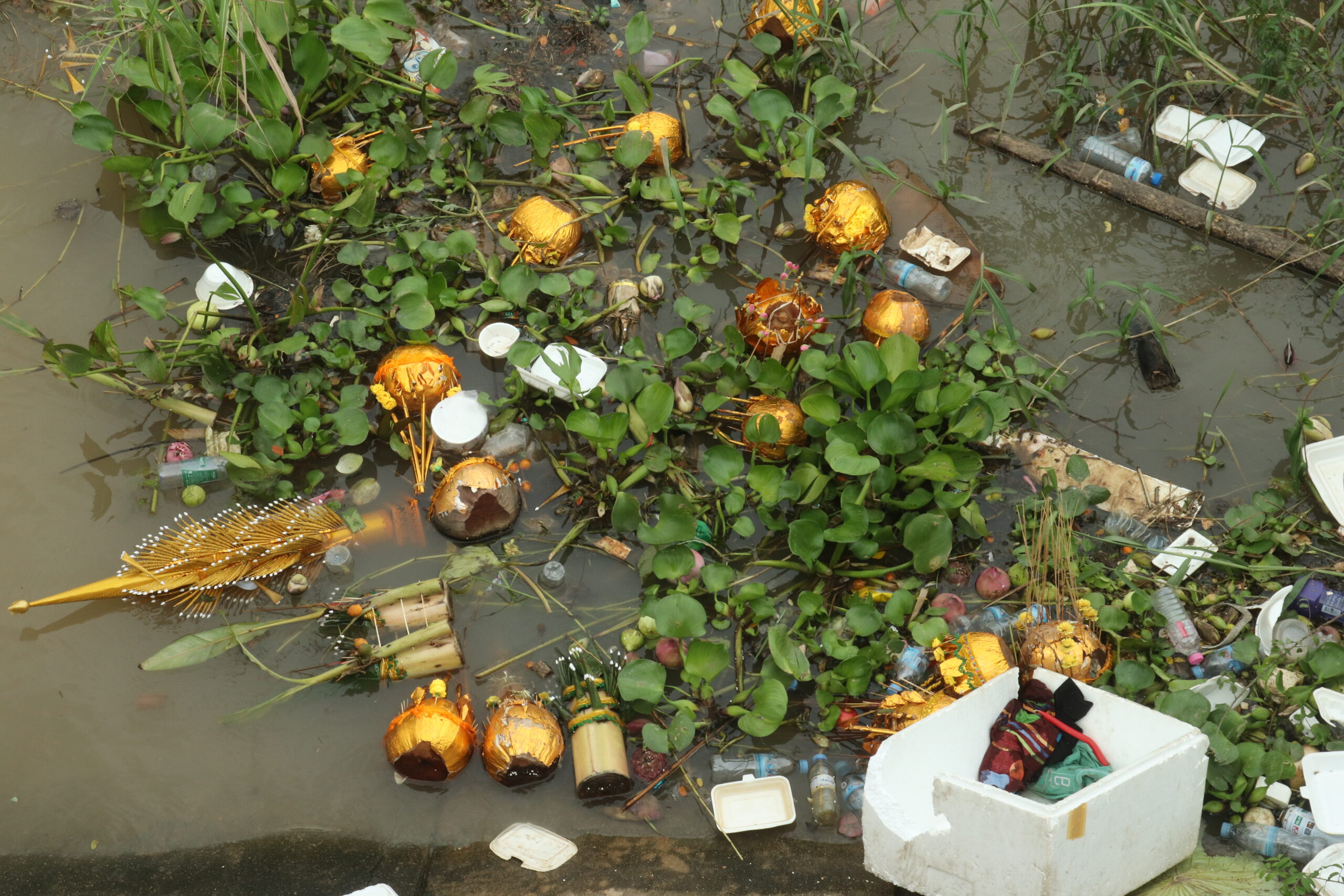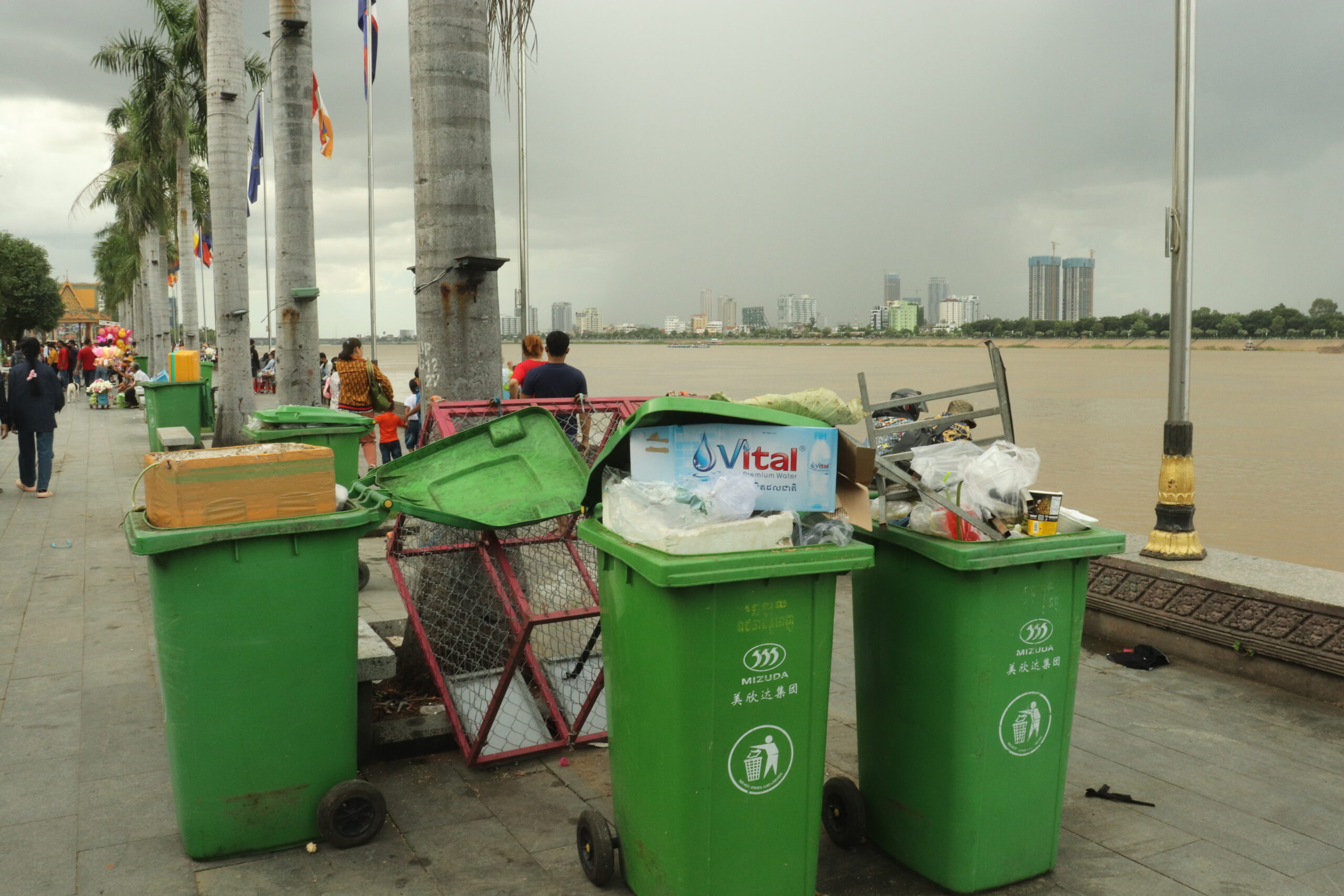On a remote road in Battambang, Cambodia, 38-year-old Lam Samphors was driving to a community training when he came across a strikingly large pile of trash in the middle of the road. As he hit the brakes and gazed upon the mountain of garbage, Samphors knew he had to do something.
“I felt ashamed on behalf of these waste throwers,” Samphors said of Cambodian citizens who routinely litter by the road.
“I asked people in my community why they throw out their trash without organising it,” Samphors said. “They told me it was because there is no waste landfill, and no waste collection service like in the city.”
When he discovered his community had limited options, he started to get to work.
In low income areas around the country where waste collection services are few, trash is often burned in the open. Due to population growth, plastic waste has increased dramatically in Cambodia over the past 25 years, creating a daunting waste management challenge.
According to the Ministry of Environment, Cambodia produces more than 10,000 tons of garbage per day, and more than 4 million tons per year. Over 10 million plastic bags are also used daily in Phnom Penh. Daily output of trash is expected to rise in the coming years to 3,112 tons (2823.15 metric tonnes) per day by 2030. Some estimates say trash output will triple by 2040.
Waste management in Cambodia falls under the responsibility of provincial authorities, as described in a 1999 government sub-decree that directs provincial authorities to oversee activities such as collecting, transporting and dumping waste.
However, a 2019 report published by a German development agency, known as GIZ, stated “some local authorities are still unaware of all of their duties and struggle to fulfil their role in waste management.”

This has contributed to waste problems in many parts of the country, but it has also created an opportunity for entrepreneurs like Samphors, who launched his startup, Samlod Ratanakphal, in 2020.
“People are happy to use our service because we provide them regular waste pick up every day, and we also encourage them to divide waste,” Samphors said.
His efforts to address waste in remote areas caught the attention of Impact Hub Phnom Penh, an organisation that funds and supports entrepreneurs with their business start-up projects.
After seeing a huge amount of waste in his home community in Samlod, Samphors and his small team started collecting rubbish from residents every day across six communes, and opened a landfill on his own property in Battambang province.
“Here we have no garbage landfill, so we create a land plot to reduce the waste issues in our community, and make it into a place that people understand and know how to keep waste in good manners,” Samphors said. “We collect 4 to 5 tons (3.6 to 4.5 metric tonnes) of rubbish every day.”
Cambodia has been gradually trying to handle its garbage problem, according to Environment Ministry Spokesman Neth Pheaktra.
“The waste issue is not only for Cambodia, it is the world issue,” Pheaktra said.
“I can say that people have started to understand the waste issues, and change their behaviour after many awareness campaigns,” Pheaktra said.
Pheaktra added that the government has established new waste management policies in order to rectify the country’s waste issues. Some include banning the import, production, and distribution of plastic bags that are thinner than 0.03 mm, and increasing tax on plastic bags.

Cambodia’s Ministry of Environment is cooperating on a new project in partnership with the United Nations Development Programme (UNDP) with support from the Japanese embassy focused on solving waste management in Cambodia.
Although the government has taken minor steps such as providing more dumpsters and trash trucks throughout the country, critics like Samphors say it’s not enough.
Besides its own rubbish, Cambodia received at least 83 shipping containers of garbage in 2019, including 70 containers from the United States and 13 from Canada, Peaktra, told The Guardian in 2019.
Pich Pisethneat, head of impact incubation at Impact Hub Phnom Penh, said Samphors’ organisation, Samlod Ratanakphal, is doing important work.
“We believe they will continue doing great things in the future,” Pisethneat said. “The reason why we…support the team is because of this dedication and their future plan in recycling.”
While providing waste management to more than 300 families, Samlod Ratanakphal has expanded its business model to recycle biological waste. The company also transforms biodegradable items, such as kitchen waste, into natural compost for farms.
Despite progress, Samphors worries about the limitations of his landfill, with waste levels rising daily. But he hopes to continue buying land and expanding the business to manage the waste that continues to pile up.
“I want to see my community in Samlod, and residents here to know how to keep wastes in order and separate it in good manners,” Samphors said. “I want to make the Samlod community a clean and beautiful community.”


